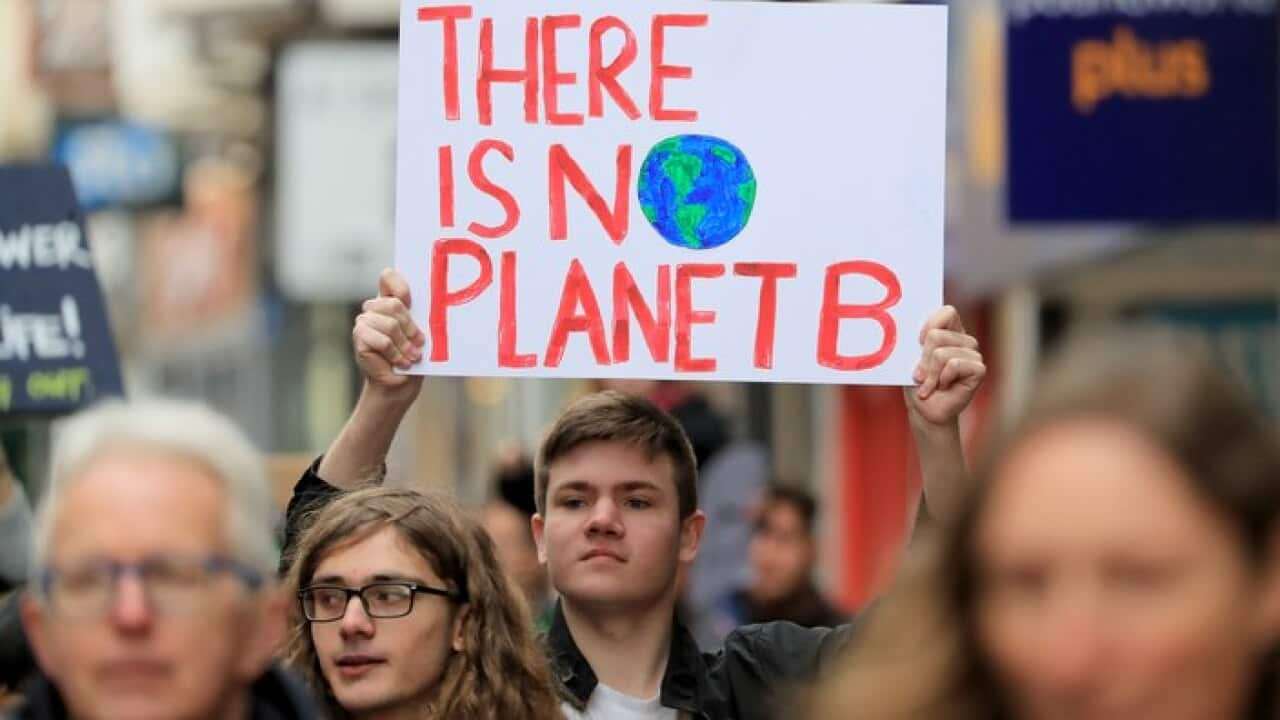Image
Long criticised for inaction on climate change, the Coalition tried to turn around its image in February with two big announcements.
First, there was a $2 billion injection to a Tony Abbott-era scheme funding carbon abatement projects – mainly in the agricultural and land sector.
In the same week, Scott Morrison approved the next stage of Snowy Hydro 2.0 in New South Wales and funding of up to $1.4 billion for the expansion designed to add 2,000 megawatts of energy generation and provide 175 hours of storage.

Australia's Prime Minister Scott Morrison has given the thumbs up to a further $1.3 billion expansion of Snowy 2.0. Source: AAP
As a result, the prime minister is confident the Coalition will reach its 26-28 per cent emissions reduction target “in a canter”, even though the government’s own figures suggest otherwise.
Labor has a more ambitious emissions reduction target, particularly as it’s not using carryover credits from the soon-to-be-defunct Kyoto agreement.
It’s promising to inject $15 billion into the Clean Energy Finance Corporation to fund renewable energy projects and reducing the cap on pollution for 250 of Australia’s biggest emitters.
Under the policy, those businesses will be able to buy and sell carbon credits to and from other countries.
But Labor has come under pressure over its failure to put a dollar figure on how much its emissions reduction plans would cost.
Using international credits is opposed by the Greens which says neither Labor or the Coalition are going far enough with their plans.
The minor party, which could be influential, particularly in the Senate, is pushing for the end of coal exports and the shut down of coal-fired power stations by 2030.
Image
While the major parties’ approach to electric vehicles is not too dissimilar on paper, the government has seized on the issue.
Scott Morrison declared Labor’s plan to drastically increase sales of electric vehicles to 50 per cent of new cars by 2030 as a “war on the weekend”, even though department officials told estimates hearings the government has its own 25-50 per cent target.
As debate spiralled into hysteria, government minister Michaelia Cash pledged to stand with tradies and “save their utes”.

Opposition Leader Bill Shorten charges an electric car in Canberra. Source: AAP
One key difference is the parties’ stance on vehicle emissions standards, with Labor planning to phase in standards of 105g of CO2 per kilometre for light vehicles.
The Coalition says that will push the price of new cars up by up to $5,000, calling it a car tax.
Meeting the electric vehicles target is estimated to cost the budget $1 billion due to lost revenue from the fuel excise.
The Greens also want to introduce vehicle emissions standards as well as a tax on luxury cars, that would be used to compensate for removing taxes and fees applied to electric vehicles.
Image
Much of the debate about climate change is linked to concern about rising power prices. In particular, the Nationals have put pressure on their Liberal partners to underwrite a new coal-fired power station in central Queensland.
Announcing a short list of 12 new energy generation projects designed to boost competition in the electricity market, Scott Morrison also committed to a feasibility study into reopening a coal-fired power station in Collinsvale.

Greens MP Adam Bandt brought a solar panel into the Parliament. Source: AAP
The government argues Labor’s climate change policy, which rules out taxpayer support for coal, will push up power prices.
The government is also providing a one-off discount on power bills for welfare recipients. The payment will go to Newstart recipients in a post-budget decision to get Labor support for the measure.
However, the government wasn’t able to get parliament’s support for its “big stick” legislation to crack down on abuse of the electricity market, without anti-coal amendments, prompting the government to take it to the election.
If Labor’s elected, households earning less than $180,000 will get a rebate of up to $2,000 to install battery systems.
The Greens have proposed setting up a government-owned electricity retailer to provide cheaper power.


